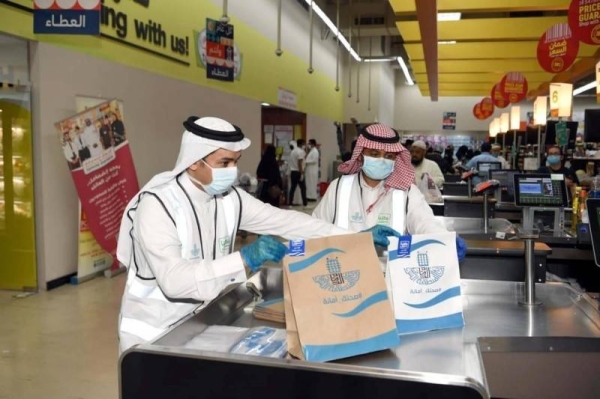RIYADH/MADINA – The global economic value of halal food, consumed by more than 1.8 billion people, is estimated to be SR2.5 trillion, Dr. Muhammad Bin Ahmed Al-Kanhal, CEO of the Saudi Food and Drug Authority (SFDA), has said.
Al-Kanhal made the comments while announcing that his organization has received Royal approval to sponsor next year’s First International Conference for Halal Food and Drugs Monitoring. “Due to the Kingdom’s position in the Muslim World, it has to take serious steps to lay down regulations and controls for halal food, which many societies consume,” Dr. Al-Kanhal said.
It is the religious duty of the Kingdom to do so because many Muslims around the world trust what the Kingdom says about halal food, he added.
The conference will focus on several topics, the most important of which are technical and religious, Dr. Al-Kanhal said. “We hope that there will be a combination of religious and technical views since halal food is a complex issue,” he said. “Halal does not refer to the way animals are slaughtered only, but also to the process of manufacturing as well as food additives. The efforts of Muslim scholars and food experts should be combined.”
Ibrahim Al-Mehaiza, a SFDA official, said that the halal concept includes food additives, some of which might contain banned material from dead animals, alcohol or pork fat. “We have six laboratories and special units that can detect alcohol and banned food additives,” he said. “We seek to build a main laboratory for all Muslim countries to evaluate any food if there is uncertainty.”
About 500,000 consignments of food arrive to the Kingdom every year, he added, and the SFDA has always been vigilant about banned ingredients and has not found any banned ingredients.
The organization has demanded that plastics used in food packaging should have what it called food-grade stamps in English on them. Packaging material includes wrapping material, plastic, metal, glass, and other items such as glasses, cups, spoons, forks, knives and straws.
Some importers said that they will discuss the demand with concerned authorities before taking any steps. Some of these importers said they have suffered great financial losses because their imported goods were banned at ports of entry.


